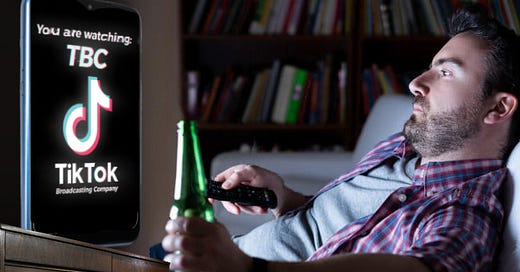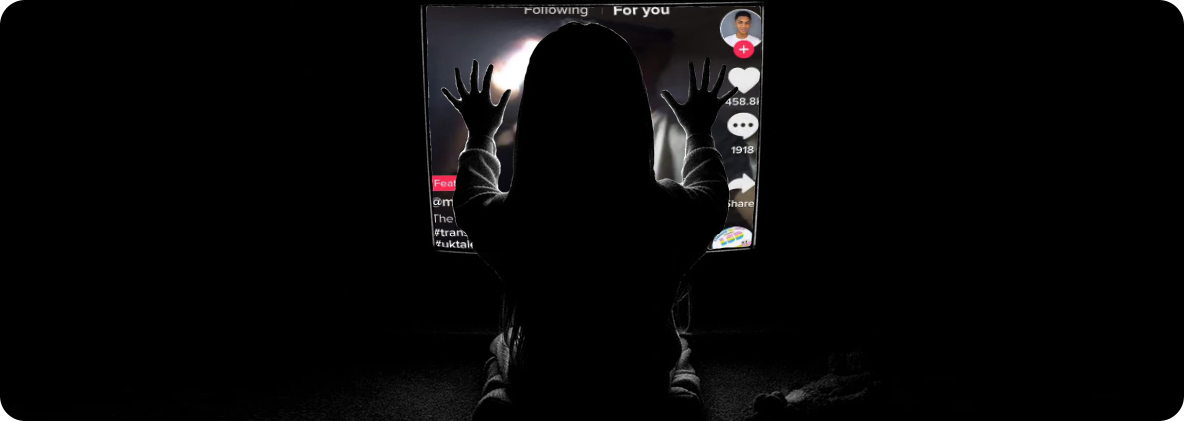“I find television very educating. Every time somebody turns on the set, I go into the other room and read a book.” ― Groucho Marx
For two generations, television was the premier punching bag of the counterculture. It represented the physical embodiment of mindless, pacifying consumption many viewed as antithetical to a more fulfilling life.
TV Shows in the 20th century were generally written to be as generic and non-challenging as possible so as to capture the broadest audiences possible. They had to walk the line of being interesting enough so that audiences wouldn’t leave out of boredom, but inoffensive and banal enough so as to not scare potential new viewers away. Couple that with the wholly passive nature of TV consumption and it’s easy to see why it was picked on so much.
Turn on, tune in, tune back out.
Deciding which exact shows could be described as “challenging” or “banal” is subjective, and beside the point anyway. And I certainly don’t want to imply that all pre-internet television was “safe”, or even that all episodes of an otherwise “typical” show never challenged their audiences. In fact I feel that most of the “boob tube” criticisms lobbied at twentieth century TV are largely exaggerated. There are many iconic network television moments that challenged society by bringing controversial issues into people’s homes, and there is an argument to be made that having a TV in every American home with the same limited options was partly responsible for the relatively high level of political unity (not to mention shared reality) the West experienced from the end of the second world war to about oh, let’s say 2003.
That said- the overall gist of the criticisms rings true. Firstly, aside from a handful of premium channels, television was ad supported; making it an early example of the internet-era proverb: “If you aren’t paying for it, you are the product”. Secondly, no matter how emotionally, politically, or artistically “challenging” a given episode was, TV watching in the past millennium was largely a passive activity. Plop down on the couch, turn on, stare. The only aspects under a viewer’s control was what time to watch (largely out of the viewers control), and what channel.
For the first couple years of the twenty-first century, it seemed the internet was destined to change this paradigm and eventually take over as the de-facto electronic entertainment medium. Many people (myself included) were optimistic that the internet would herald in a true break from the banalities associated with television’s passivity, broad-market appeal, and consumer-culture soullessness. A real “wake up” call for consumers of the arts, wherein people would be given a choice in what they watched and when. It was believed that consumer choice would force studios to stop producing safe, uncontroversial shows designed to appeal enough to a lot of people, and a more meritocratic era of television would arise.
And y’know what? I suspect that’s exactly what happened. Mostly. I don’t think it’s a coincidence that the current “golden age” of television we’re in now kicked off around the exact same time broadband internet started seeing widespread adoption. Consumer power of choice (both on content and time) allowed people to watch shows personalized to their specific interests. Studios threw big money at hiring quality creatives to produce their new shows. Television as an artistic medium today is no longer “second fiddle” to cinema in terms of respect and praise from the critics as it once was. Today we have a streaming “television” environment that’s well-funded, lovingly crafted, and significantly more artistically varied than existed in the pre-internet era. Whether this era of high-spending will last after the “streaming wars” are decided is anyone’s guess, but for now there’s no denying the options are pretty good!
What I was deeply wrong about however, was the assumption that given a choice, consumers would opt to be artistically challenged on the whole, at least a little bit more, than they were during the television hegemony that dominated the mainstream in the previous century. As I’ve talked about before, given the choice between something mostly familiar and something brand new, most people will opt for the familiar. It’s just less work. And in our attention-battered reality, it’s increasingly difficult for people to justify putting effort into what’s supposed to be their entertainment.
But I digress, TV indeed got better! It (mostly) lost the ads! It evolved into a new “elevated” form. It’s not to imply that mainstream shows today are all high-minded fine art productions, but there’s no denying that for the most part, mainstream narrative-driven shows take longer to get going, take more investment from the viewer (more work), but generally have a deeper payoff. TV today compared to TV before, is best described as being more cinematic, more crafted, while still being distinctly different than cinema. But interestingly- in TV’s evolution it also became less TV-like.
The medium is the message
Instead of TV getting better and well, that being that, TVs evolution left behind an unfilled niche for passive low-stakes consumption that (as far as I can tell) went mostly unnoticed for nearly a decade. It’s not that surprising it took awhile to be capitalized upon because it’s not like people were out clamoring in the streets for a “new idiot box”, right? TV was better now, right? Nobody born after the eighties watched cable anymore. After all, nobody wants to be a brainless "boob tube" zombie. But, as you dear reader are likely aware, it turns out that for humans- the opportunity to be lightly entertained while doing basically nothing, is very hard to resist1.
TikTok took a format —very short, easily skippable videos— that already existed on social media (first on Snapchat and Vine, then later on Instagram as “stories”), and basically just dialed the “social” aspect of it waaay down. The “magic” of TikTok is that it’s not really about who you’re following, it’s mainly about who you’re not. A term I recently heard to describe this is “recommendation media” (as opposed to “social”), Michael Mignano describes it in his recent essay The End of Social Media and the Rise of Recommendation Media:
In social media, people see content from their friends regardless of the quality of the content, in recommendation media, content distribution is optimized for engagement.
I think he’s using the word “quality” very generously, but you get the idea. He goes on:
Recommendation media is here. As a result, we’ll make fewer explicit choices (“these are my friends”) and more implicit choices (“this is where the algorithm recommends I should spend my attention”) about how, when, and why we consume content.
And thus the goal of fully transforming creators into brands is achieved. At least TikTok isn’t trying to pretend their app is about “connecting” the way some other companies might2. On the content-uploader side of things- TikTok is pretty explicit about promising wannabe influencers that if they try hard enough they'll have a real shot at virality and all the wonderful things that come with it.
On the consumer side, what TikTok users get is a screen that serves up nonstop, comfortable, low-stakes video, riddled with product placements, and interspersed with occasional ads.
…Sound familiar?
Addendum
I want to be clear- it’s not the intent of this newsletter to shame or look down at any individual for using social media, only to encourage my readers to examine what's truly valuable and meaningful in their lives, both online and off. Most people probably don’t even consider if their media consumption is leading to an unfulfilling life. Others might know all too well, but still find it hard to resist. At the end of the day- we're all just humans trying to get by.
Personally I consider undesired yet compulsive behavior a sign of an unhealthy addiction but I’m not a doctor and frankly that’s a whole ‘nother topic.
I often wonder if TikTok’s de-emphasis on connecting with IRL friends will make it easier for users to quit when the time comes. The “but my friends are here” hurdle is the often described as the toughest to get past, even for people who are aware a given platform is negatively impacting their lives.









Well written and hit the nail on the head. Hopefully some will see themselves and dial down on social media.
Love the post!